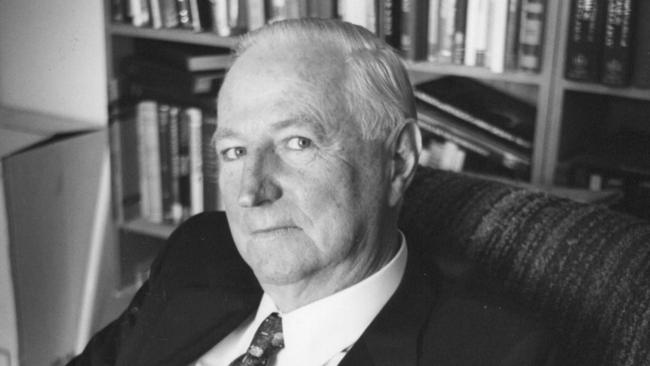New cancer drug listed on PBS derived from thalidomide
THALIDOMIDE, which caused thousands of birth defects and was consequently the world’s most hated medicine, will be available from Thursday at a heavily subsidised price — but why?

Illness
Don't miss out on the headlines from Illness. Followed categories will be added to My News.
THE world’s most hated medicine is making a comeback as a last ditch saviour for dying cancer patients — and from Thursday will cost $37.70 instead of $10,500 for a three-week supply.
Thalidomide caused thousands of tragic birth defects and infant deaths in the 1950s and 1960s, but is now finding a new role as a cancer treatment.
The drug Pomalyst (pomalidomide), a derivative of thalidomide, today gains listing on the Pharmaceutical Benefits Scheme for patients with relapsed and refractory multiple myeloma who haven’t been helped by other powerful cancer drugs.
The drug carries the same teratogenic risks for embryos — severe birth abnormalities or death — as its parent thalidomide and women taking it will be warned of the risks and not will not be given it if pregnant, or if they may become pregnant.
Multiple myeloma is a cancer of the plasma cells in the bone marrow and around 1200 Australians are diagnosed with it each year.

Treatment options available to patients if the powerful drugs bortezomib and lenalidomide — another thalidomide derivative — have failed to help are extremely limited.
Patients need to take one capsule a day, and a packet containing 21 capsules costs $10,500 without the subsidy, but it will be available to eligible patients from today on the PBS for $37.70.
The head of SA Pathology’s Myeloma Research Program at the Royal Adelaide Hospital, Dr Noemi Horvath, said the listing was important for patients who had run out of options.
“There have been great advances in treatment of myeloma in the last 15 years but it is still an incurable disease,” Dr Horvath said.
“Up until now there has been nothing else to offer. This essentially gives another line of treatment in prolonging life.”
Pomalyst has been used in two clinical trials in Australia, including one to assess whether it should be listed on the PBS.
Thalidomide was first marketed in 1957 and was widely used as a drug to relieve morning sickness in pregnant women, but it resulted in thousands of infant deaths and serious defects.
Australian obstetrician Dr William McBride made the link between the drug and birth defects in 1961 and it was withdrawn from the market in the same year.
Derivatives of the drug are now used to treat diseases including cancers and leprosy.
Pomalyst has been approved for use by authorities in the United States and Europe and was registered on the Australian Register of Therapeutic Goods in July 2014.
Thalidomide itself was approved by the Therapeutic Goods Administration for the treatment of myeloma in 2003 under strict provisions and its derivatives are overtaking the original - which remains subject to global calls for compensation.
RESEARCH STOPS DEATHS AND DEFECTS
THALIDOMIDE was first marketed in 1957 in West Germany as a sedative but later used internationally to alleviate morning sickness in pregnant women.
MEDICAL reports noted a jump in infant deaths and defects, including malformation of limbs, deformed eyes and hearts, deformed alimentary and urinary tracts, blindness and deafness.
AUSTRALIAN obstetrician Dr William McBride’s research linking the new drug to defects published in journal The Lancet in 1961 lead to thalidomide being withdrawn and banned later the same year, and the spike in birth defects subsequently plummeted as a result.
DERIVATIVES of the drug are now used carefully as a last stage weapon against some cancers.



